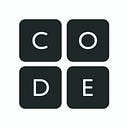PISA’s new focus on computational thinking and coding
PISA has a new test; countries can prepare by prioritizing computer science.
As technology continues to advance at a rapid pace, how we educate students should evolve accordingly — including making computer science a core subject. The Organisation for Economic Co-operation and Development (OECD) recognizes the importance of computational thinking and computer science and, in a groundbreaking move, plans to adapt its triennial Programme for International Student Assessment (PISA), which evaluates education systems worldwide by testing the skills and knowledge of a sampling of 15-year-old students. In 2025, PISA will add computational thinking and block-based coding to the list of skills it evaluates.
As global education systems grapple with an increasingly AI-driven world, the gap will widen between countries that have incorporated a foundation of computer science into their school curriculum and others that have not, and this disparity could show in future PISA exam results. Already, the 2022 PISA Mathematics assessment incorporated aspects of computational thinking for the first time. Now in 2025, there will be a dedicated exam called Learning in the Digital World, which will measure “students’ capacity to engage in an iterative process of knowledge building and problem solving using computational tools.”
Why emphasize computer science?
Computational thinking helps students to approach problems effectively and formulates solutions in ways that can be executed by computers. It goes beyond just coding; it equips students with skills like problem-solving, critical thinking, and creativity, which are applicable across various fields. Studies repeatedly show that children who study computer science perform better in other subjects, excel at problem-solving, and are more likely to attend college.
Block-based coding, on the other hand, is a beginner-friendly way to introduce students to programming. It uses graphical, drag-and-drop interfaces, allowing students to create functioning code with visual, stackable blocks. Students in countries who apply block-based coding to solve problems across diverse scenarios will also find themselves more prepared when tackling the PISA exam.
Example PISA exam questions featuring block-based coding:
The introduction of computational thinking and block-based coding in a PISA exam highlights the essential role of computer science in education.
PISA scores go beyond reading, mathematics, and science
In previous years, PISA rankings were heavily influenced by students’ performance in reading, mathematics, and science. With the inclusion of computational thinking and block-based coding, global education systems will be compared based on how well they are preparing their students for an increasingly digital world.
By 2025, countries that have made computer science a core part of their school curriculum and have demonstrated a readiness to embrace a technology-driven future — like Estonia, South Korea, and the United Arab Emirates — are poised to advance in the rankings. But the real prize lies in equipping students with the skills they need to navigate and succeed in an increasingly digital world.
A wake-up call
Code.org applauds the inclusion of computational thinking and block-based coding in the PISA assessments and hopes it serves as a wake-up call for governments around the globe: The need for computer science in the basic school curriculum is no longer a matter of debate but a necessity. More than 800 business, education, and nonprofit leaders agree: Computer science provides an essential foundation — not only for careers in technology but for every career in today’s world.
The PISA exams are a de facto global measure of how well education systems prepare students for the real world. As the digital revolution continues to reshape our world, computational thinking and coding are becoming fundamental skills, just like reading, mathematics, and science.
The goal for every country should be to provide education that equips students to thrive in our rapidly changing world. Countries that embrace computer science in their curriculum are setting their students up for success for a promising future in the digital age.
— Pat Yongpradit, Code.org Chief Academic Officer
Code.org is a 501(c)3 nonprofit organization dedicated to every student having the opportunity to learn computer science as part of their core K-12 education. We are publicly funded by people like you. If you would like to join our commitment to computer science education by making a donation today, please click here. For questions, please contact Development at giving@code.org or (206) 593–5521. Thank you.
